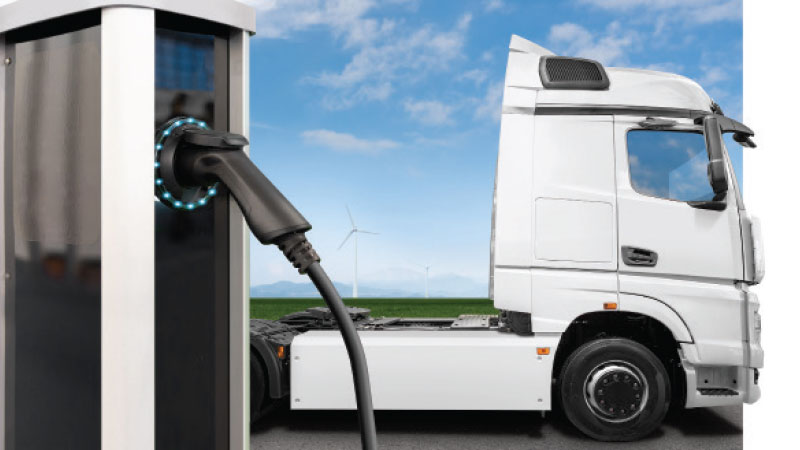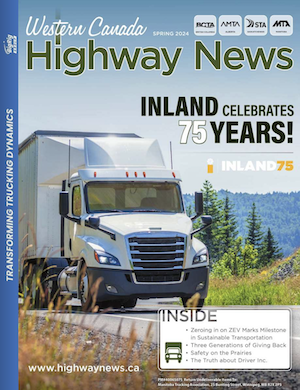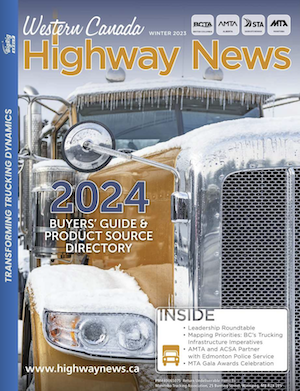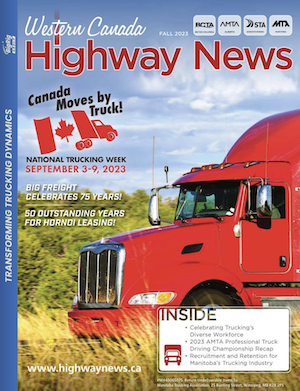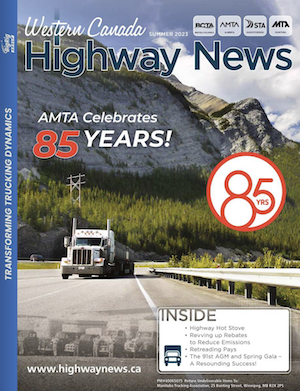BC Trucking Association
The BC Trucking Association (BCTA) has recently announced significant changes to its CleanBC Heavy-Duty Vehicle Efficiency (HDVE) Program, aimed at further reducing greenhouse gas (GHG) emissions from heavy-duty trucks in British Columbia. The program has been successful in reducing emissions since its inception, and the new changes are expected to further enhance its effectiveness.
Since 2019, BCTA has partnered with the BC Ministry of Transportation and Infrastructure to provide funding for the adoption of technologies and practices that reduce emissions from heavy-duty vehicles. The CleanBC HDVE Program now provides incentives of up to $20,000 of rebates per vehicle and up to $150,000 per fleet for the purchase and installation of fuel-efficient equipment for new trucks or as retrofits for existing vehicles. Education is also included as part of the program to promote the benefits of fuel-efficient driving practices.
Driving Down Emissions
BC’s commercial road transportation industry has a huge environmental impact, accounting for a significant portion of the province’s total emissions. Reducing emissions from our industry is crucial to meeting British Columbia’s climate targets
and avoiding the worst impacts of climate change.
CleanBC is the provincial government’s plan to reduce GHG emissions by shifting away from fossil fuels and toward renewable energy and promoting energy efficiency and innovative technologies. To combat our carbon footprint,
BC has legislated climate action targets for reducing GHG emissions 40% below 2007 levels by 2030, 60% by 2040, and 80% by 2050. The Province also has an interim target for 2025 to reduce emissions 16% below 2007 levels. To help meet provincial targets, the BC Government also established a transportation-specific 2030 emission reduction target of 27-32%, with 2007 as the baseline.
The CleanBC HDVE Program has
been highly effective in helping BC move closer to its climate goals. BCTA estimates the impact of the program to have removed 67.8 million kilograms of carbon dioxide emissions each year –
the equivalent of 14,386 passenger vehicles across North America – and that number continues to climb into year four of the program.
New Funding Levels,
New Equipment, and
New Vehicle Thresholds
In addition to the increase of funding available, revisions to the CleanBC HDVE Program to encourage even more carriers to adopt cleaner, fuel-efficient technology include:
• Class 5 and higher vehicles (or a licensed gross vehicle weight rating of 7,257 kg or greater) are now eligible
for incentives;
• Increased program incentives for qualifying equipment, including diesel APUs (up to $6,000/device); electric APUs (up to $8,000/device); electric APUs paired with solar panels (up to $10,000/device); tire inflation devices (up to $750/device); and cab heaters, coolers, and coolant heaters (up to $2,000/device); and
• Addition of the diesel-electric reefer, which is eligible for up to $10,000/device.
BCTA is also making it easier for carriers to put money back into their pockets. All qualifying fuel-efficiency equipment approved by the recipient must be purchased and installed in British Columbia by a BC-based company during the program year and only after passing the mandatory program course. However, if the equipment is unavailable for purchase in BC due to supply chain issues and/or the company selling the equipment does not have a BC-based office, the equipment may still be eligible for program incentives if it can be confirmed that:
• For retrofits, the fuel-efficient equipment purchased was both installed in BC and incurred BC provincial sales tax paid on the equipment being installed; and
• For new vehicles, the vehicle was delivered to a BC terminal for operations, has had a commercial vehicle inspection in BC prior to operations, and either has incurred provincial sales tax for the import of the vehicle into BC or is registered provincially as a multijurisdictional vehicle.
Program Key Features
Educating our industry on low-emission and fuel-saving technology continues to be a key component of BCTA’s environmental stewardship initiatives, which is why the completion of the HDVE Program’s fuel efficiency management course is an important requirement to meet eligibility for incentives.
The newly revamped and condensed course teaches participants the importance of why truck and motor coach fleets of any size should have a fuel management program that focuses on driver training, benchmarking, adoption of fuel-saving equipment, and fleet turnover. Completion of the course is a pre-requisite before applying for rebates and can be attended online or in person at the BCTA office. Register for free by visiting www.bctrucking.com/training/cleanbc-heavy-duty-vehicle-efficiency-program-course.
The full list of approved equipment and rebates is included in the CleanBC HDVE Program Guide, which can also be found on the BCTA website.
Funding is allocated equitably among successful applicants by region, carrier type, and size. BCTA is working in collaboration with Indigenous businesses and communities to encourage program participation and achieve stronger representation of Indigenous talent in the commercial vehicle sector. There is no requirement to be a BCTA member to participate in the program.
Although heavy-duty vehicles have been major contributors to GHG emissions for decades, the good news is that there are many opportunities available today that can significantly lower our industry’s climate impact. The success of the HDVE Program is a testament to the power of targeted policies and programs to effect change in industries and reduce emissions. With the right incentives and support, companies can make significant strides in reducing their carbon footprint and improving their bottom line. By taking advantage of available incentives for the adoption of fuel-saving technology, carriers in BC can save thousands of dollars each year in fuel costs and greatly reduce emissions in our sector to help British Columbia reach its 2050 net-zero target.
For more information on the CleanBC Heavy-Duty Vehicle Efficiency Program, including the complete list of qualifying fuel-saving equipment, visit www.bctrucking.com.
To learn more about CleanBC initiatives, visit www.cleanbc.gov.bc.ca.


 1-866-985-9791
1-866-985-9791